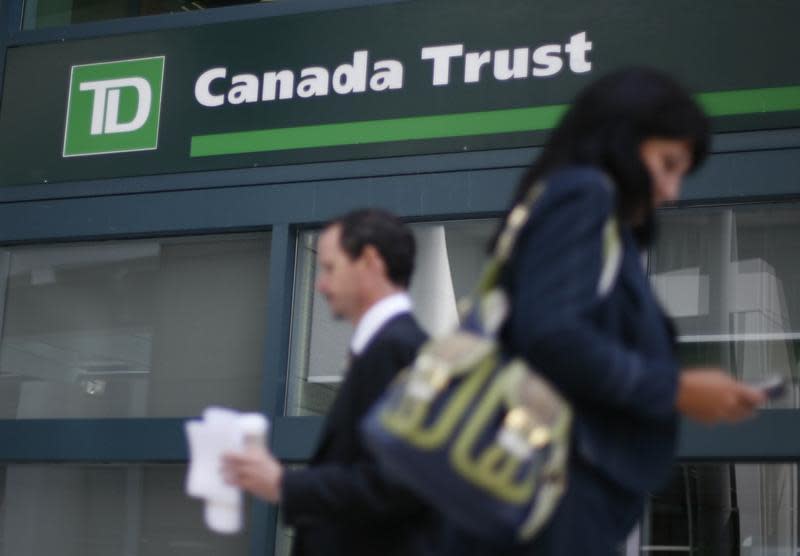Jobs cut as tough times loom for Canada’s billionaire banks

Canada’s banks have been ranked the strongest in the world for seven straight years and recently reported first quarter profits that topped $8 billion for the group. And to be clear, that’s $8 billion for five banks over three months.
So, time for a hiring spree, right? Not quite. To look at the recent headlines, you’d think it’s tough times for the big lenders.
According to reports this week, Bank of Montreal has cut some 50 jobs on its capital markets side, and Toronto-Dominion is paring jobs from several departments. This follows Scotiabank’s announcement in the fall that it will cut 1,500 jobs, most of them in Canada.
Of course, the big banks each employ tens of thousands, so these aren’t exactly mass layoffs. But the banks are clearly in a cost-cutting mindset, and their quarterly reports show headcounts lower this year than last.
“2015 is going to be a bad year for Canadian banks,” says Ian Lee, a former banker and current business professor at Carleton University.
Now, it should be noted that ‘bad year’ is a relative term. A bad year for the Canadian banks is not like a bad year for General Motors. It usually takes one of those once-a-decade financial crises to put the banks into the red, and the last time that happened in 2008-09, they emerged stronger than ever. And we mentioned they’ve already booked a few billion in this fiscal year.
But Lee says the banks, which are in a way victims of their own success as they have to show not only profitability but also growth to satisfy shareholders, have good reason to worry.
“Profit levels are going to decline significantly and they’re going to decline for two reasons: their revenues are going to be coming down and expenses are going to be going up,” he says.
For much of this, we can blame oil (which is an easy thing to do this year). Generally, the banks make money by lending money, and successful oil companies borrow money to expand. So, weak oil equals less oil growth equals less business borrowing. And beyond that, energy workers who have been laid off may default on loans, and smaller companies themselves could go belly up, all of which forces the banks to take big writeoffs.
But the other big contributor is interest rates, which are a double-edged sword for the banks. Low rates makes loans cheaper, which has prompted Canadians to borrow like drunken gamblers over the past five years, pumping up the housing market and driving personal debt to record levels.
But the low rates also mean the banks earn less per dollar lent. And with rates still on the decline, and consumers expected to start clamping down on their high-rolling ways, the banks are looking at a pullback in the biggest contributor to their bottom line.
“Consumers who are tapped out are going to be pulling back,” says Lee, who expects the coming slump to least at least into next year or perhaps into 2017.
What this means for the folks sitting at home hating bank executives and their seven-figure salaries, however, is that bank stocks could soon be hitting a rough spot, and that can be a big deal. Anyone with retirement savings in this country probably owns quite a lot of bank, so when they take a hit, we all take a hit.
But worried investors can take comfort in one truth: the Big Five have proven time and again they know how to make money in a blah economy.

 Yahoo Finance
Yahoo Finance 
